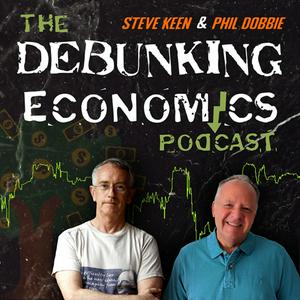Phil Dobbie talks to Prof Steve Keen about the one modern economy that actually let its banks fail — Iceland — and what the rest of the world should have learned from it. They unpack how a tiny country ended up with banks eleven times the size of its GDP, fuelled by high interest rates, foreign borrowing, and a carry‑trade frenzy that made Iceland look less like a nation and more like a hedge fund with a flag. When the krona collapsed, imports doubled in price, inflation exploded, and the banking system imploded — yet Iceland refused to socialise the losses, letting foreign creditors take the hit while rebuilding with new domestic banks, capital controls, and a currency so cheap it sparked a tourism boom. Phil and Steve contrast that with Ireland, Greece, and Cyprus, where governments guaranteed bank debts, couldn’t devalue, and ended up trapped in austerity. The episode asks the big question: what’s the real lesson from Iceland’s crash — and why did so few countries follow it? Hosted on Acast. See acast.com/privacy for more information.


